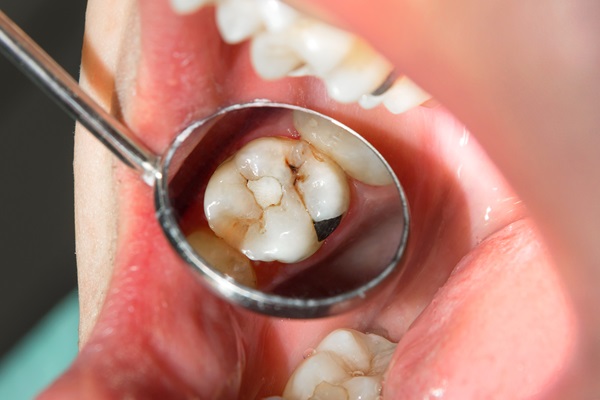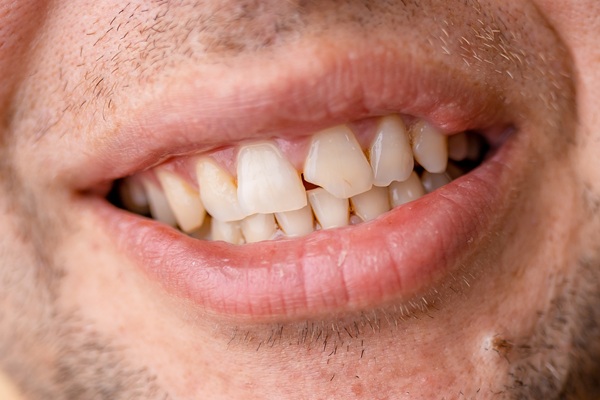Prevent Further Tooth Decay With Dental Fillings

Think you might need a dental filling? Read on to learn more about this treatment. Tooth decay is one of the most common oral health conditions. When untreated, it can result in serious dental problems including tooth loss. Dental fillings restore the structure and function of the affected teeth. Knowing the importance of dental fillings and seeking timely treatment can help you avoid serious dental problems and maintain a healthy smile.
The need for dental fillings
Tooth decay is caused by poor dental hygiene, snacking on sugary foods, and insufficient fluoride intake. The acids produced by bacteria in plaque damage the enamel and dentin of a tooth, causing cavities. This issue often starts and worsens over time. Early signs of decay include tooth sensitivity, pain, and holes or pits in the teeth. If not treated, decay may get further into the tooth to the pulp and cause pain, infection, and eventual tooth loss.
Some of the options for filling a tooth cavity include:
- Amalgam Fillings: This option is inexpensive and resilient. Dentists often use amalgam to fill cavities in teeth that are in the back of the mouth.
- Composite Resin Fillings: These fillings match the natural color of the teeth and are often used for visible parts of the tooth for aesthetic reasons. They bond to the tooth surface and provide additional structural support.
- Gold Fillings: These are more expensive, stronger, and durable. Gold fillings are often used on teeth in the back of the mouth.
- Ceramic Fillings: These fillings are made from porcelain, tooth-colored, and resist staining better than composite resin.
The dental filling procedure
Placing a dental filling is a multistep procedure. The dental professional will first examine the teeth to determine the extent of the decay. Sometimes, a dental x-ray might help reveal hidden cavities around the teeth. To start, the dentist will numb the area around the affected tooth with a local anesthetic to ensure the patient is comfortable.
Using precision instruments like a drill, laser, or air abrasion tool, the dentist will remove the decayed portion of the tooth. After cleaning out the decay, they will flush the cavity to remove bacteria and debris. This reduces the risk of future decay and helps the filling material bond to the surface.
An adhesive layer is often applied to bond composite filling material to the tooth. The filling material is then inserted into the cleaned and prepared cavity. For composite resin fillings, the material is applied in layers and each layer is hardened with a special curing light.
As soon as the filling is in place, the dental professional will ask the patient to bite down on a special paper to ensure the filling aligns properly with the opposite teeth. They will adjust any high spots for a proper bite. The filling is then polished to match the texture of the tooth (this process makes the filling functional as well as aesthetic).
Dental filling aftercare
With proper care and maintenance, patients can extend the life of dental fillings and maintain good oral health. Here are some tips for caring for dental fillings:
- Oral Hygiene: Patients need to maintain a proper oral hygiene routine. This includes brushing twice a day with fluoride toothpaste and flossing daily. This prevents plaque from accumulating around the filling and reduces the risk of further decay.
- Regular Dental Check-ups: Visit the dentist for biannual check-ups and professional cleanings. During these appointments, the dentist will check the condition of the fillings and correct issues before they worsen.
- Avoid Hard Foods: Hard or sticky foods may dislodge or damage fillings. Limit foods like hard candy, ice, and chewy or sticky candies.
- Use a Mouthguard: If you grind your teeth at night or play contact sports, get a mouthguard to protect fillings and natural teeth from damage.
- Avoid or Limit Staining Substances: Some substances such as coffee, tea, and tobacco can stain composite resin fillings. Limiting their consumption can help keep your fillings stain-free.
Benefits of dental fillings
Dental fillings prevent further decay and damage while restoring the strength and function of the affected tooth. Fillings also prevent decay from spreading to adjacent teeth. Undergoing the procedure early can prevent more extensive and expensive dental treatments in the future, such as root canals or extractions.
Final note
Bacteria can wreak havoc on the teeth if left to thrive. If cavities set in, urgent treatment is necessary. The dental filling material is determined by the location of the decay, the patient's dental history, and aesthetic preferences. Regular dental check-ups are essential to allow the dentist to detect early cavities and treat them effectively. If you have noticed signs of tooth decay, contact our dentistry office today to set up an appointment.
Request an appointment here: https://www.lilburnfamilydentistry.com or call Lilburn Family Dentistry at (770) 800-0178 for an appointment in our Lilburn office.
Check out what others are saying about our dental services on Yelp: Composite Fillings in Lilburn, GA.
Recent Posts
Dental fillings are one of the most common types of restorative services offered by dentists. They are used for a variety of purposes, including to repair a cracked tooth. This review discusses the use of dental fillings to repair a cracked tooth and when a filling is the most appropriate solution.A cracked tooth can be…
When individuals experience cavities and other problems that affect their teeth, dentists use a dental filling to repair and restore them. This helps preserve damaged teeth and prevents their loss. Dental fillings are the most common type of dental work: according to the Centers for Disease Control and Prevention, over 90% of Americans have had…
If you have ever gotten a cavity, you most likely had it filled with a dental filling. Dental fillings are used to fill the space left by a cavity.The recommended time for a dental filling is when your dentist detects the beginnings of tooth decay and not when you notice a hole in your tooth.…
A dental filling is used to replace natural tooth material that is lost due to decay. Even though fillings are designed to last for a long time, they all eventually need to be replaced. Fillings may chip, crack, or fall out for a variety of reasons. But regardless of the reason, if you are having…


